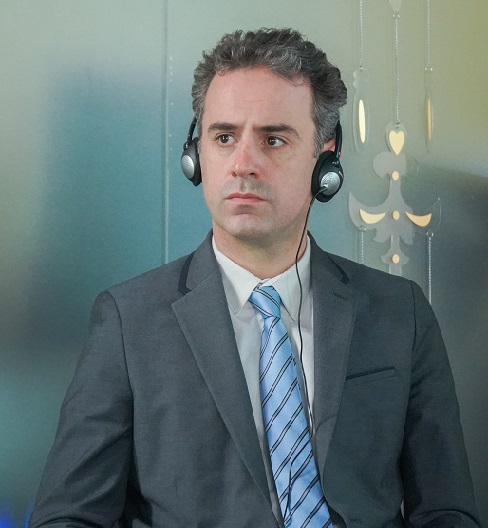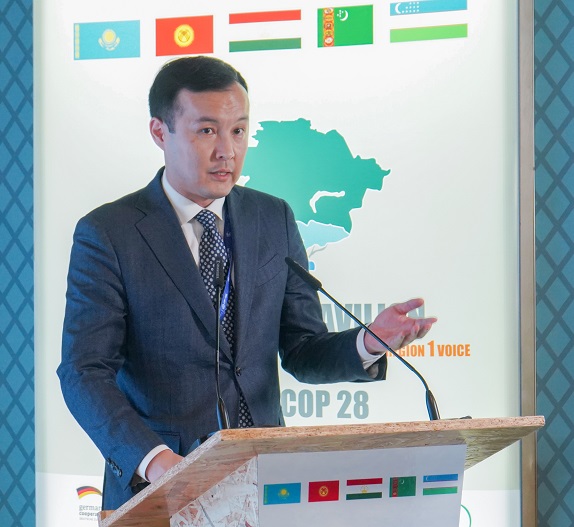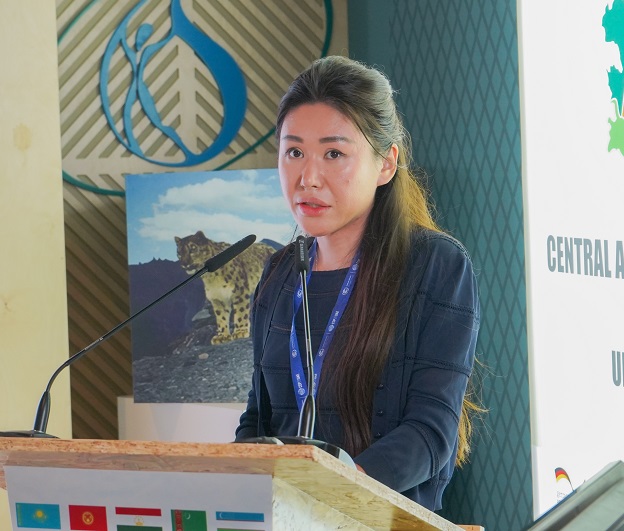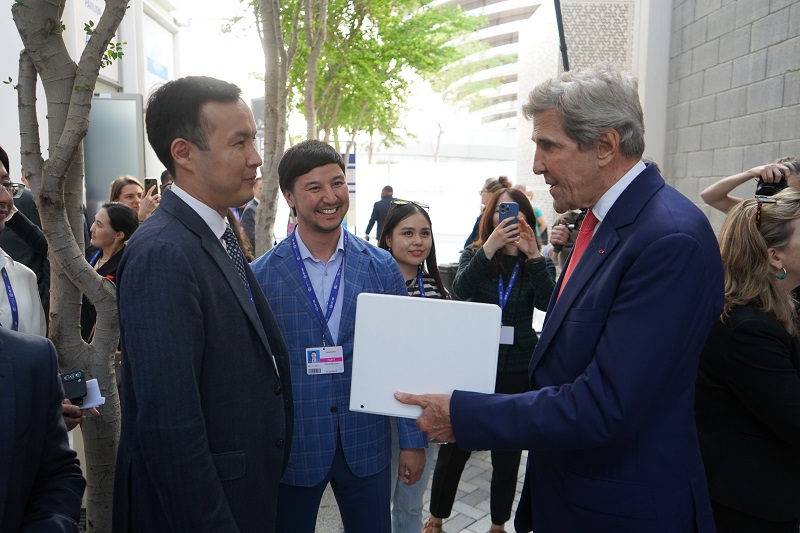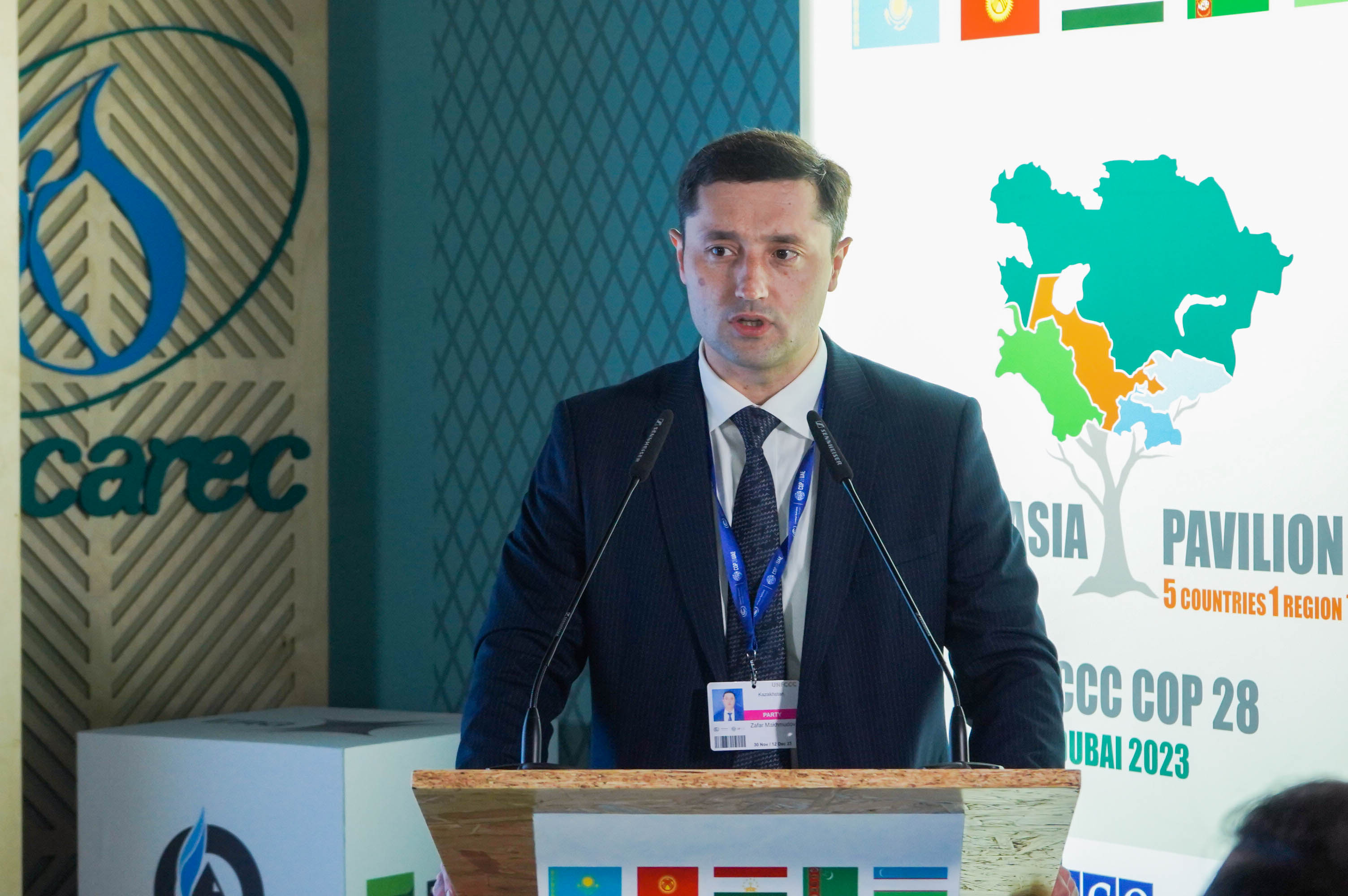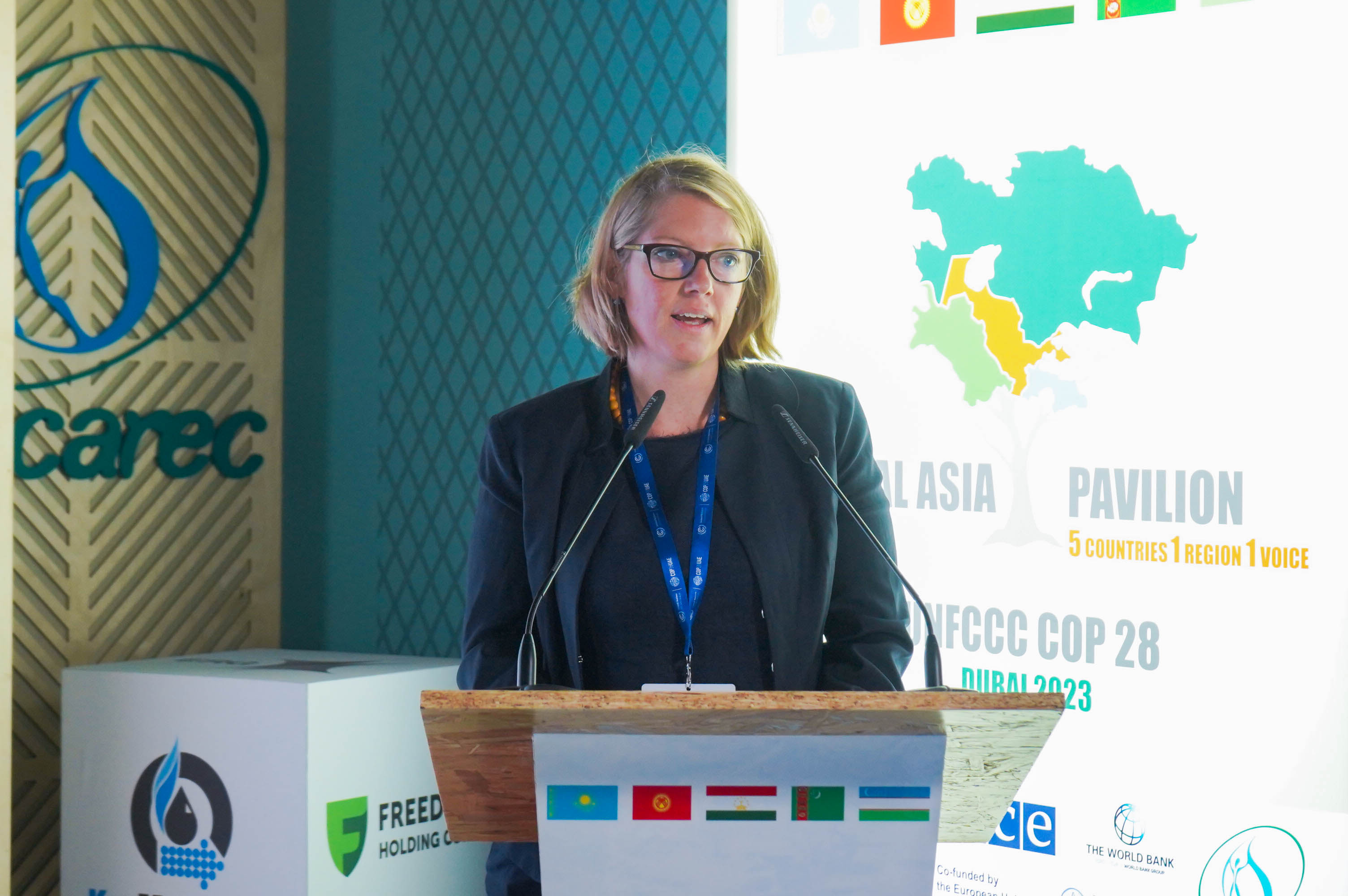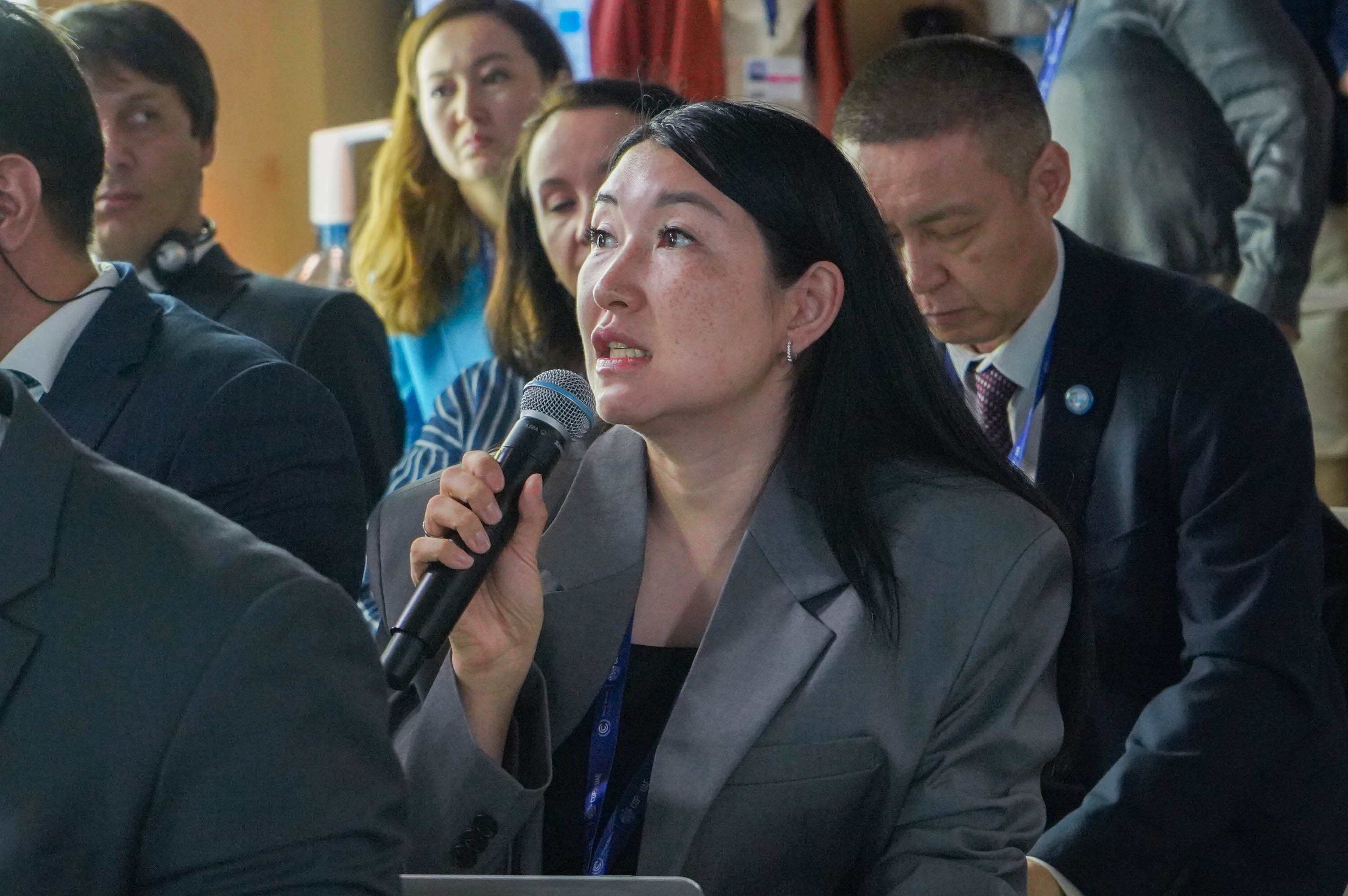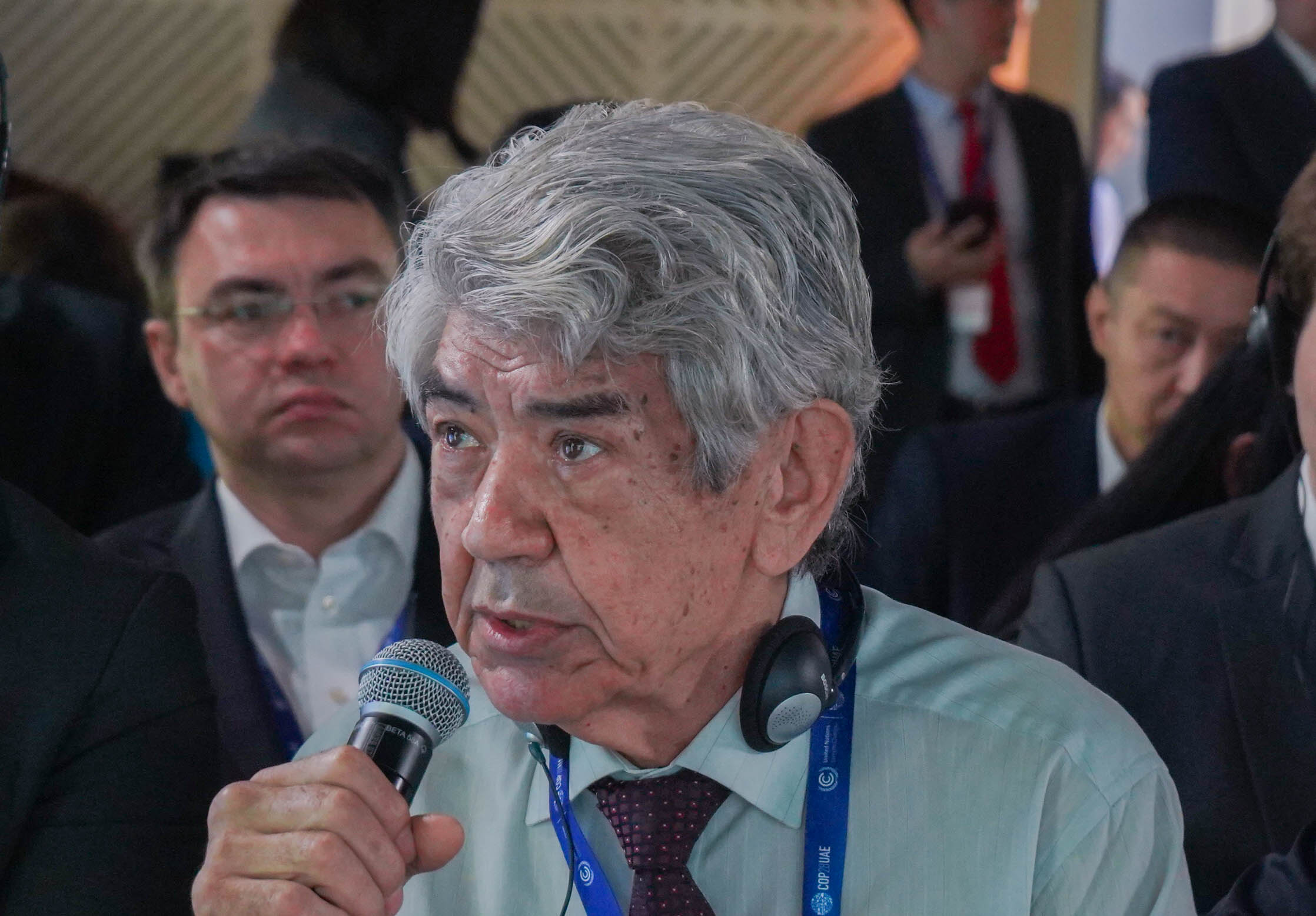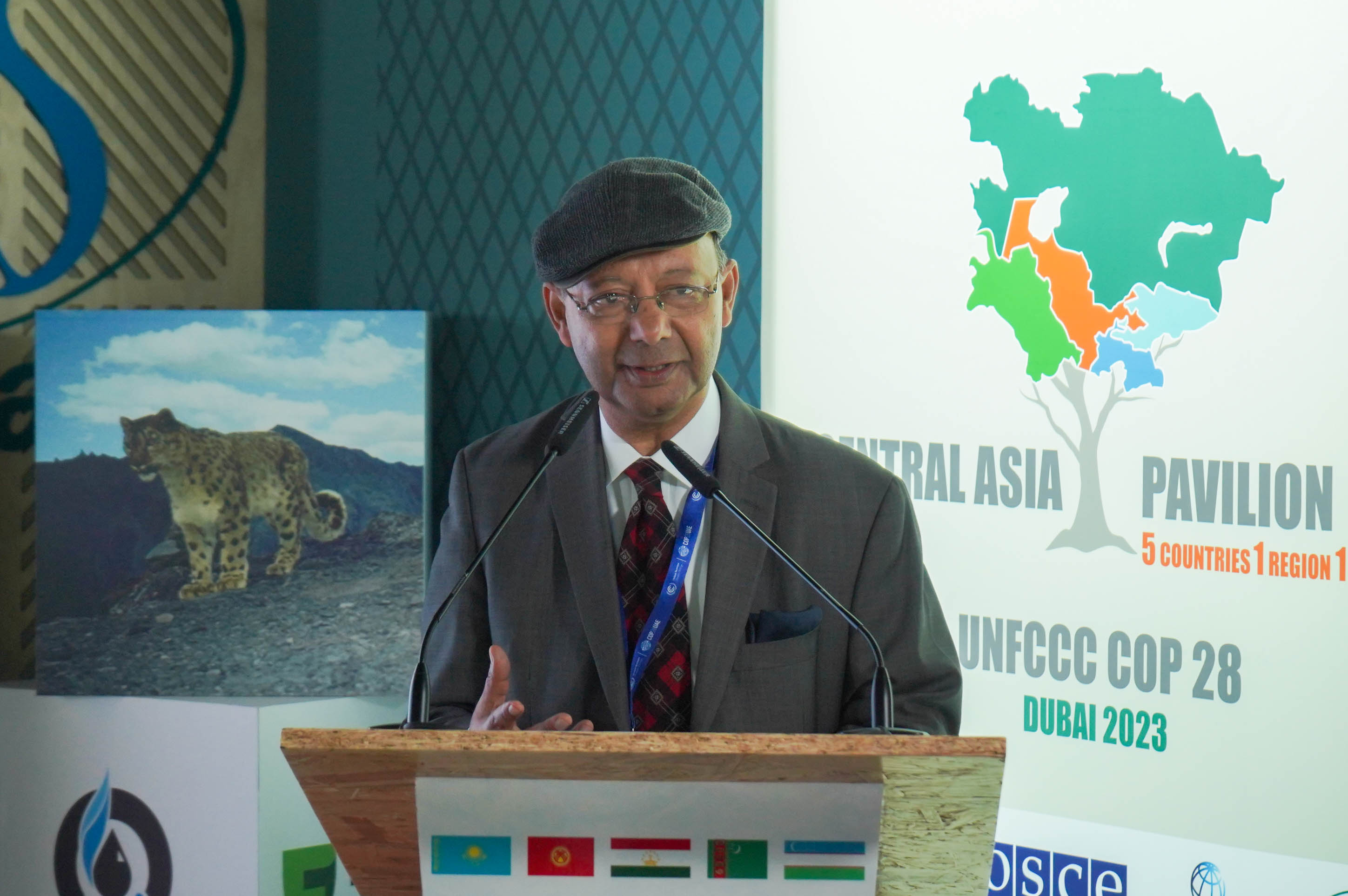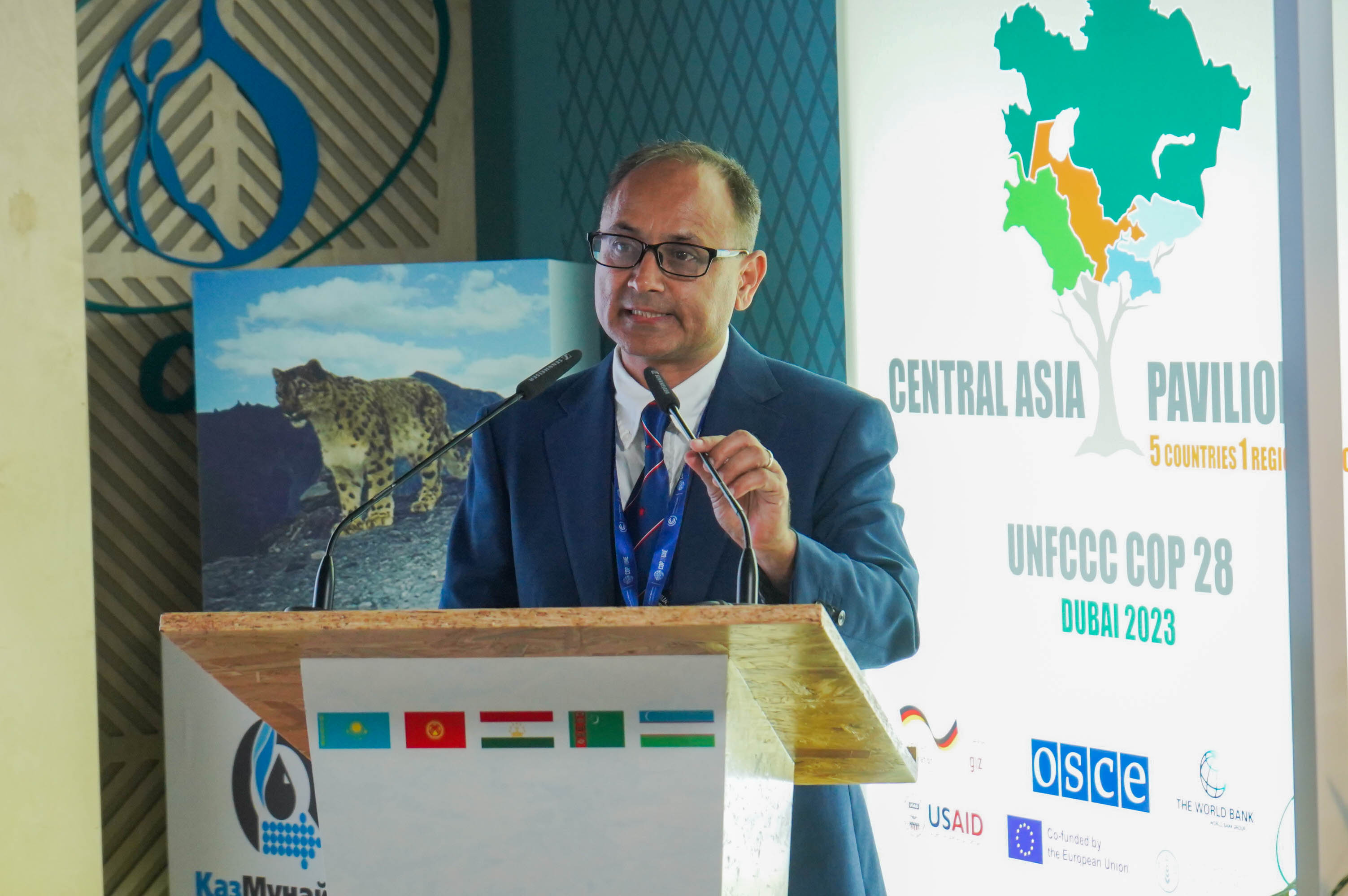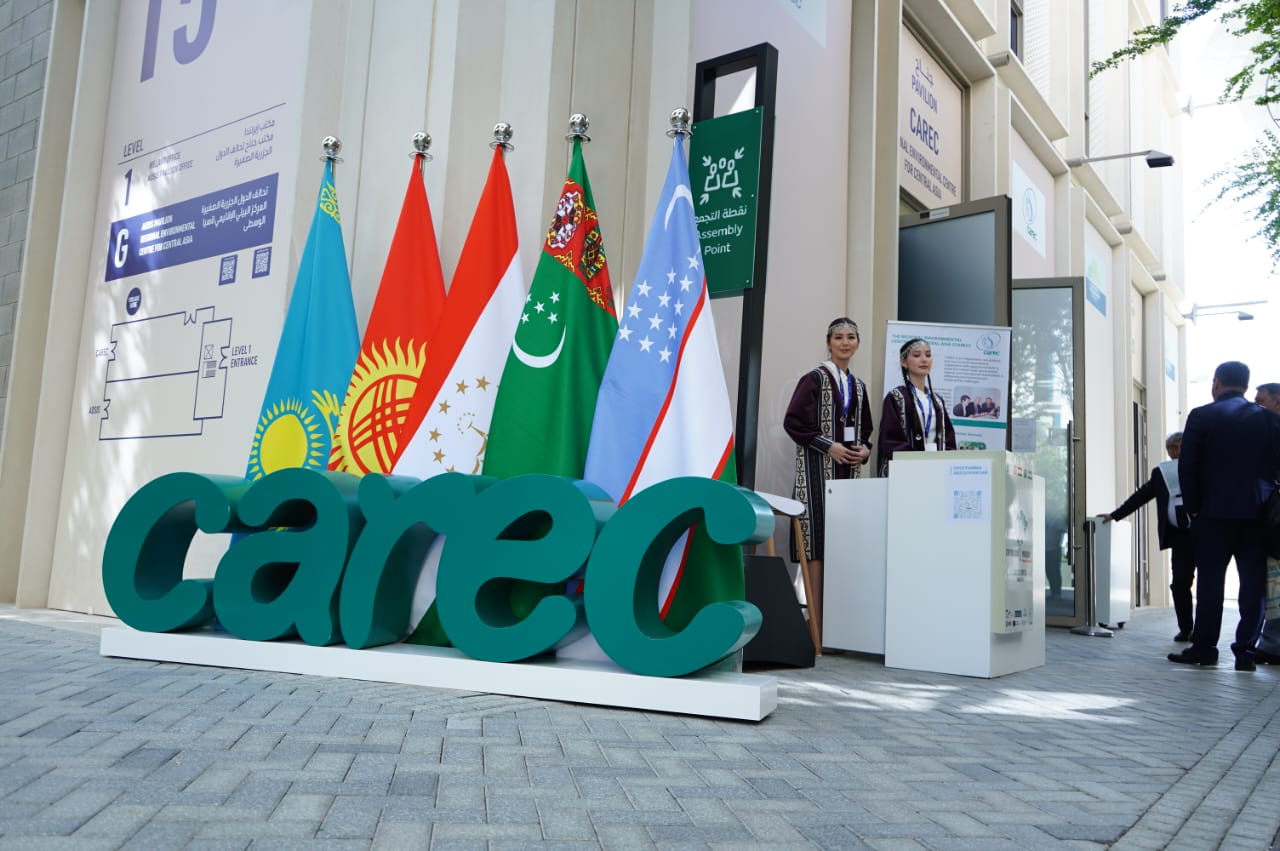
Dubai, UAE – The Central Asia Pavilion at the 28th Conference of the Parties to the UNFCCC (UNFCCC COP28) has completed its work.
From November 30 to December 10, 2023, the events of the Pavilion attracted over 3000 people participating in the UNFCCC COP28. More than 400 people participated online.
“The Central Asia Pavilion - RCCA at UNFCCC COP28 has become a unique demonstration of the region's unification and a single platform for promoting joint activities and innovative approaches of the five Central Asian countries - Kazakhstan, Kyrgyzstan, Tajikistan, Turkmenistan and Uzbekistan. The pavilion attracted attention as a dynamic center for the exchange of ideas and experience and became a key platform for discussing challenges and opportunities related to climate change adaptation and mitigation, financing climate change and green development of countries, promoting new ideas and technological solutions in the region,” said Vladimir Grebnev, Regional Climate Change Specialist of the Regional Environmental Centre for Central Asia (CAREC).
The rich program of the Central Asian Pavilion consisted of 44 events on broad themes, starting with the presentation of the most important climate document for the region – the Regional Strategy for Adaptation to Climate Change in Central Asia – and ending with the discussion of the main issues of the global agenda in the context of the Central Asian region.
Among them: low-carbon development in Central Asia, preservation of mountain ecosystems and glaciers, pitching of green projects and climate finance, issues of mitigation and adaptation in the region, as well as the creation of national transparency systems, cross-border cooperation within the framework of Nexus projects and the role of civil society in confronting climate challenges, etc.
More than 270 speakers spoke at the Central Asian Pavilion. These are representatives of government agencies of Central Asian countries, Andorra, Nepal, Bhutan, Kenya, Germany, Finland and other countries, leaders and experts on climate change from international organizations, private business and the non-governmental sector.
Representatives of more than 30 international structures, such as the Green Climate Fund, the Adaptation Fund, the IPCC, German Agency for International Cooperation (GIZ), the European Union, the OSCE, the United States Agency for International Development, the Swiss Agency for Development and Cooperation, the World Bank, UNDP, FAO, WFP, IOM, the Global Green Growth Institute, the International Mountain Partnership, Potsdam Institute for Climate Impact Research, Kazakh-German University, etc. involved into work of the CA Pavilion.
Traditionally, in addition to the main events, more than 30 meetings were held in the meeting room of the Central Asian Pavilion, which made it possible to establish new partnerships and expand cooperation within the region and beyond.
Most importantly, the Central Asian Pavilion has become a sought-after platform where the most significant climate problems of the region are discussed in a global format, and Central Asia has organically joined the mainstream of the UN Global Climate Forum.
Central Asia Pavilion “5 countries – 1 region – 1 voice” is organized by the Regional Environmental Centre for Central Asia (CAREC) in cooperation with the Governments of Central Asian countries under financial support of the GIZ, OSCE, the World Bank, USAID, the European Union, and the Food and Agriculture Organization of the United Nations (FAO).
